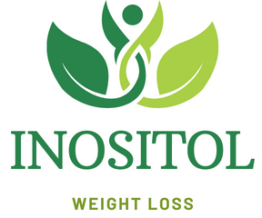Introduction
Here elevate your mental well-being with journaling exercises. It might be difficult to find time to prioritize mental health in our fast-paced society. Here comes journaling, a potent tool for those pursuing personal growth, mental health activists, and journaling aficionados.
A significant path of self-discovery and personal development can be initiated by dedicating a few minutes daily to writing and reflection.

Why Journaling for Mental Health?
Journaling is more than simply writing; it’s a means to gain a deeper knowledge of your feelings, ideas, and actions. It enables you to:
Table of Contents
- Let go of suppressed feelings and lessen tension.
- Become more aware of your sensations and thoughts.
- Recognize trends in your thoughts and actions.
Cultivate gratitude and mindfulness.
Set and achieve personal goals.
Including mental health journaling in your routine can result in substantial personal progress, regardless of your level of experience.
10 Journal Prompts for Self-Discovery and Personal Growth
Here are five diary prompts to get you started that will improve your mental health:
1. What are three things I'm grateful for today?
A great technique to change your perspective from what’s going wrong to what’s going good is to keep a gratitude notebook.

2. How do I define success in my life?
Consider how you define success. Does it fit your aims and actions?
3. What emotions have I experienced today, and what might have triggered them?
Effectively regulating your emotional triggers requires an understanding of them.
4. What do I need to forgive myself for?
Self-forgiveness can lead to healing and be a freeing experience.
5. Who inspires me, and why?
Finding your role models might help you understand the traits you want to cultivate.
6. What limiting beliefs are holding me back, and how can I overcome them?

For personal development, it is essential to identify and confront your limiting ideas.
7. How can I practice self-care this week?
Make a list of practical self-care practices that support your well-being.
8. What small step can I take today toward a long-term goal?
Larger goals can appear more attainable by concentrating on smaller, more doable tasks.
9. What am I most proud of about myself?
Celebrating your accomplishments boosts confidence and self-worth.
10. How do I envision my ideal life in five years?
Setting a clear course for your future is facilitated by visualizing it.
Incorporating Journaling into Your Routine
When it comes to journaling, consistency is essential. The following advice will help you develop the habit:
- Decide on a certain time each day to write in your journal, such as before bed or in the morning.
- Establish a distraction-free, cozy writing area.
There is no right or wrong way to journal; it is a personal process, so have patience with yourself.
You can develop a better awareness of yourself and advance your mental health by utilizing these prompts and incorporating writing into your daily routine.

FAQs
How often should I journal for mental health?
You decide! While some people prefer to journal a few times a week, others feel that journaling every day is beneficial. Consistency is crucial, so pick a frequency that works for your habit and feels sustainable.
Do I need any special tools or apps to start journaling?
No specialized equipment is required. All you need to get started is a basic notebook and pen. Other apps can improve your journaling experience with prompts, reminders, and organizing capabilities, though, if you prefer digital journaling.
What if I don't know what to write about?
Try doing the journaling exercises in this tutorial if you are experiencing writer’s block. They might act as a useful springboard to get you thinking and reflecting.
Can journaling really improve my mental health?
Indeed, several studies have shown that journaling can improve mental health by assisting with stress management, mood enhancement, and general well-being. However, it’s crucial to keep in mind that journaling is only one tool and ought to be used in conjunction with other mental health techniques.
Do I have to share my journal with anyone?
No, your diary serves as a private place for you to record your ideas and contemplations. Whether or if you decide to share any of it with other people is completely up to you. The fact that it seems genuine and appropriate for you is the most crucial factor.
How can I stay motivated to keep journaling?
Make writing a regular part of your routine, set reasonable goals, and remind yourself of its advantages. Maintaining the practice may become more instinctively motivating as you observe improvements in your mental health over time.
Conclusion
Journaling about mental health is an effective technique for anyone looking to grow personally and know more about themselves.
You can gain insights that improve your mental health by completing these questions and committing to consistent journaling.
Are you prepared to advance your journaling endeavors? To advance your development and comprehension, connect with other enthusiasts and share your experiences.

Pingback: Unveiling the Future of Integrated Health -